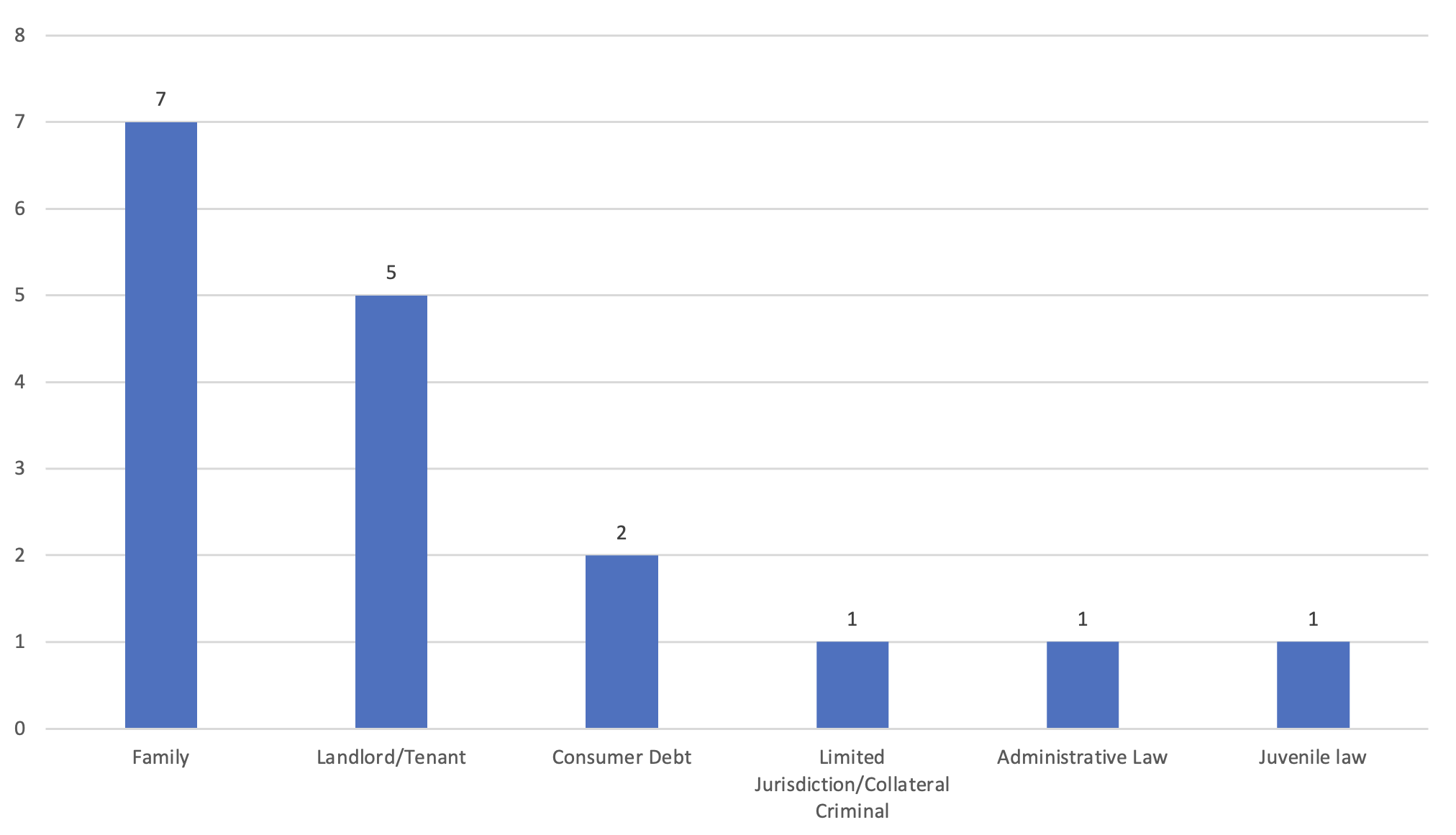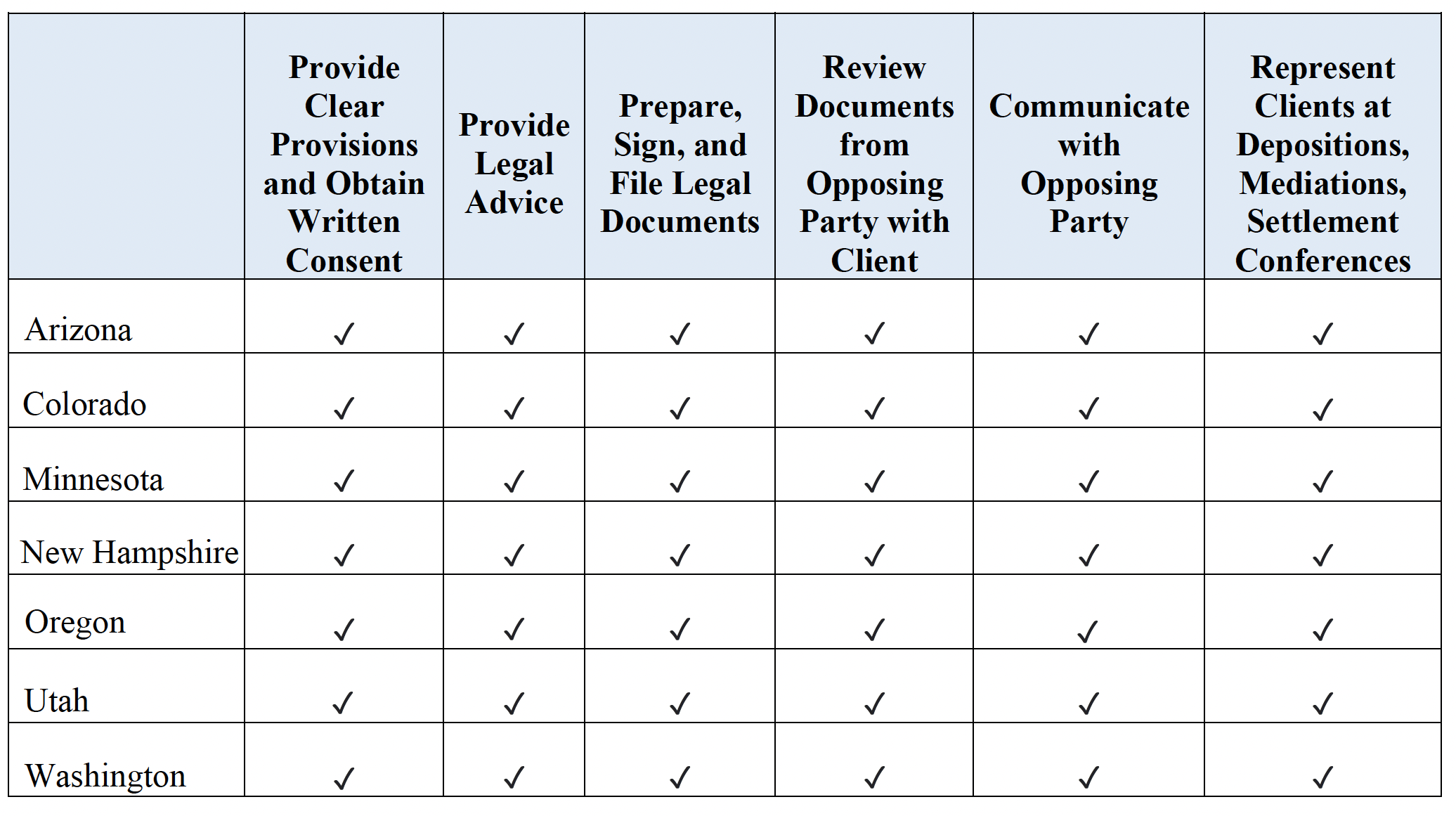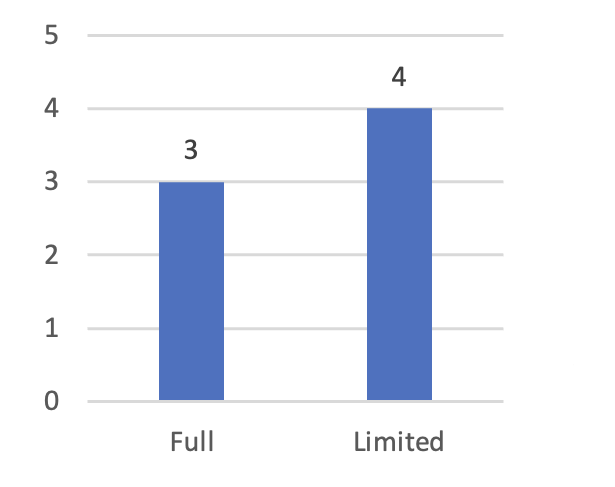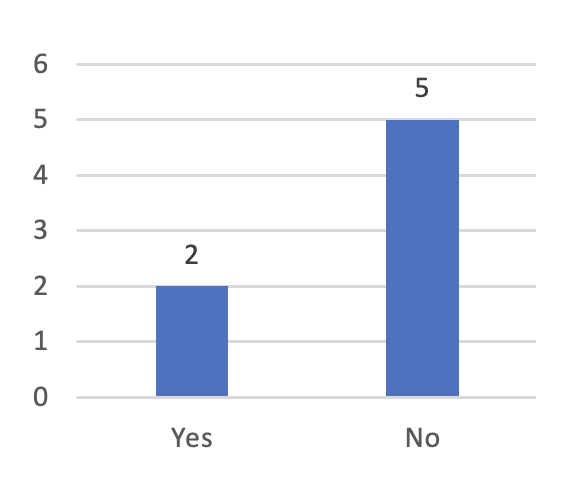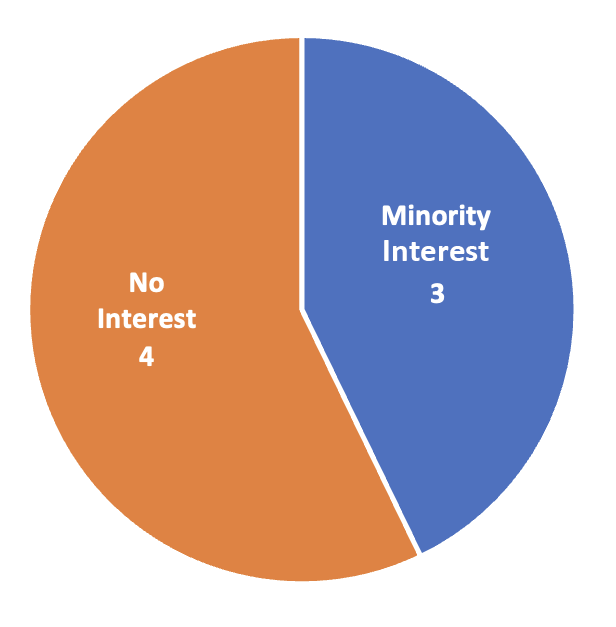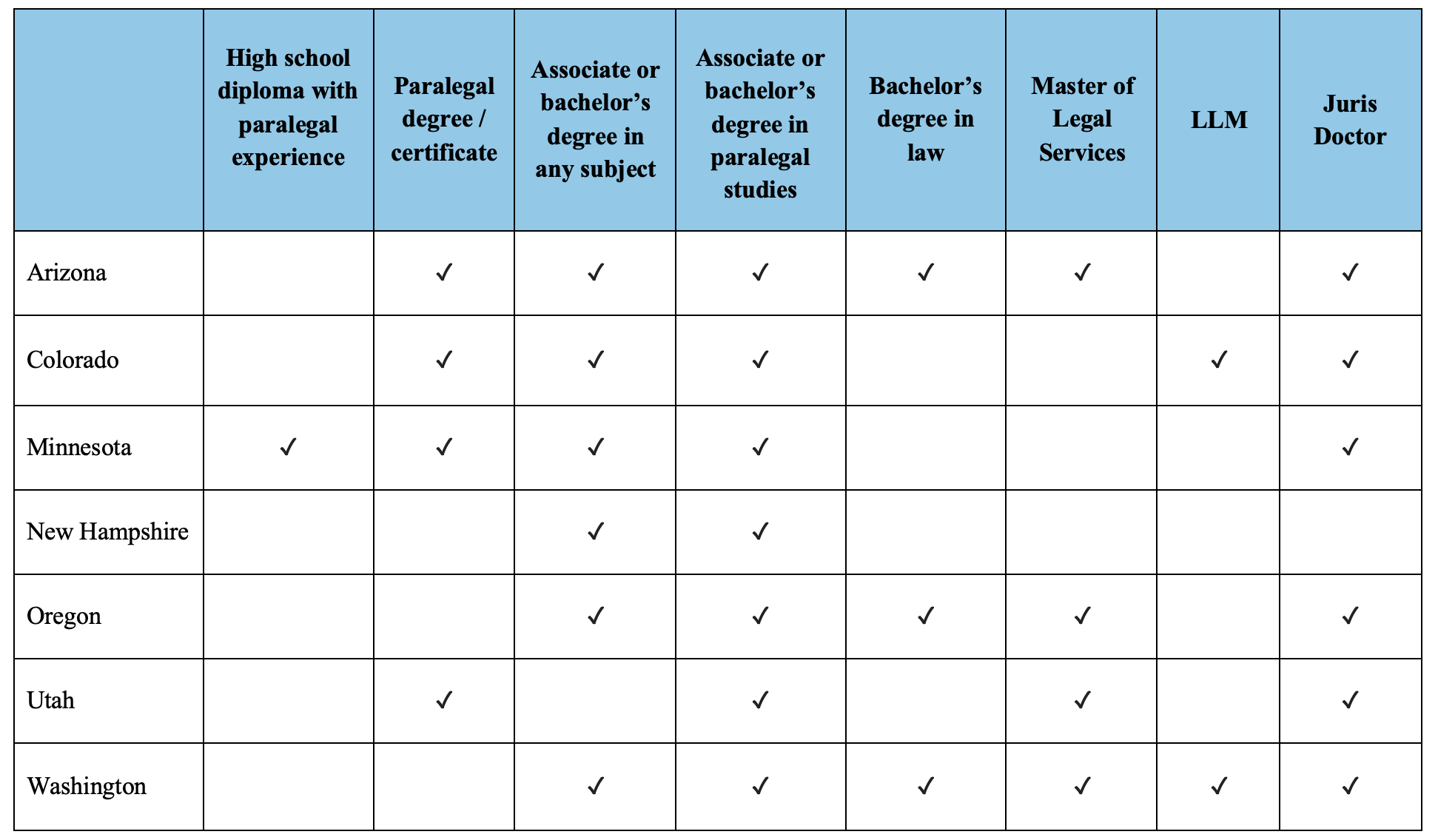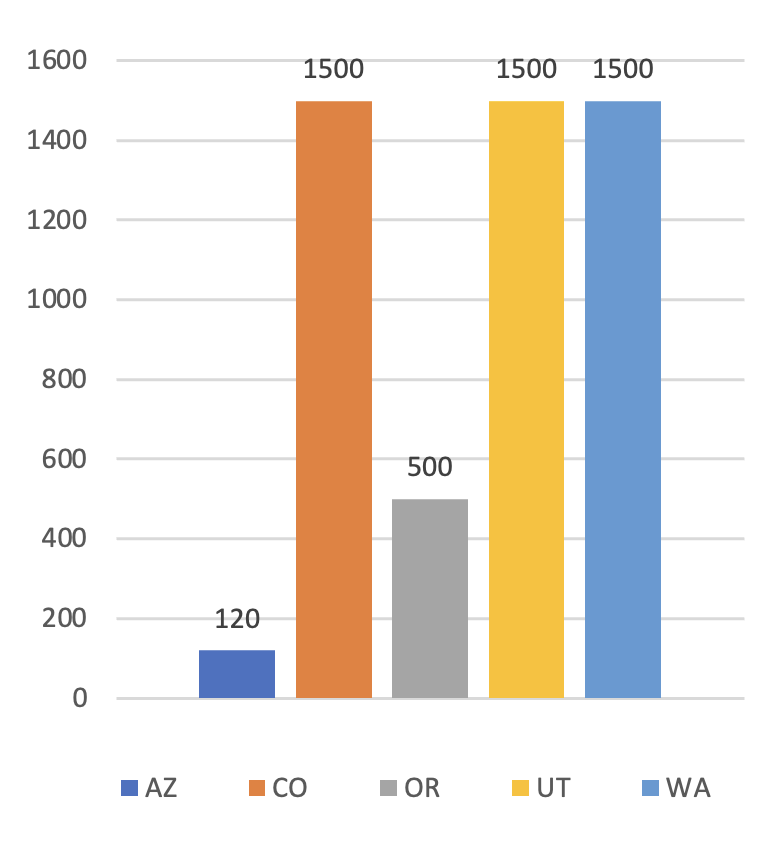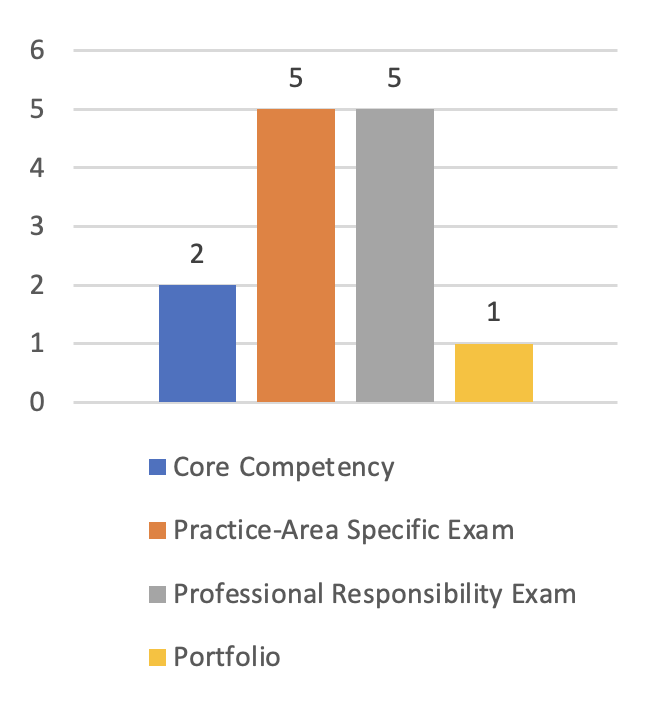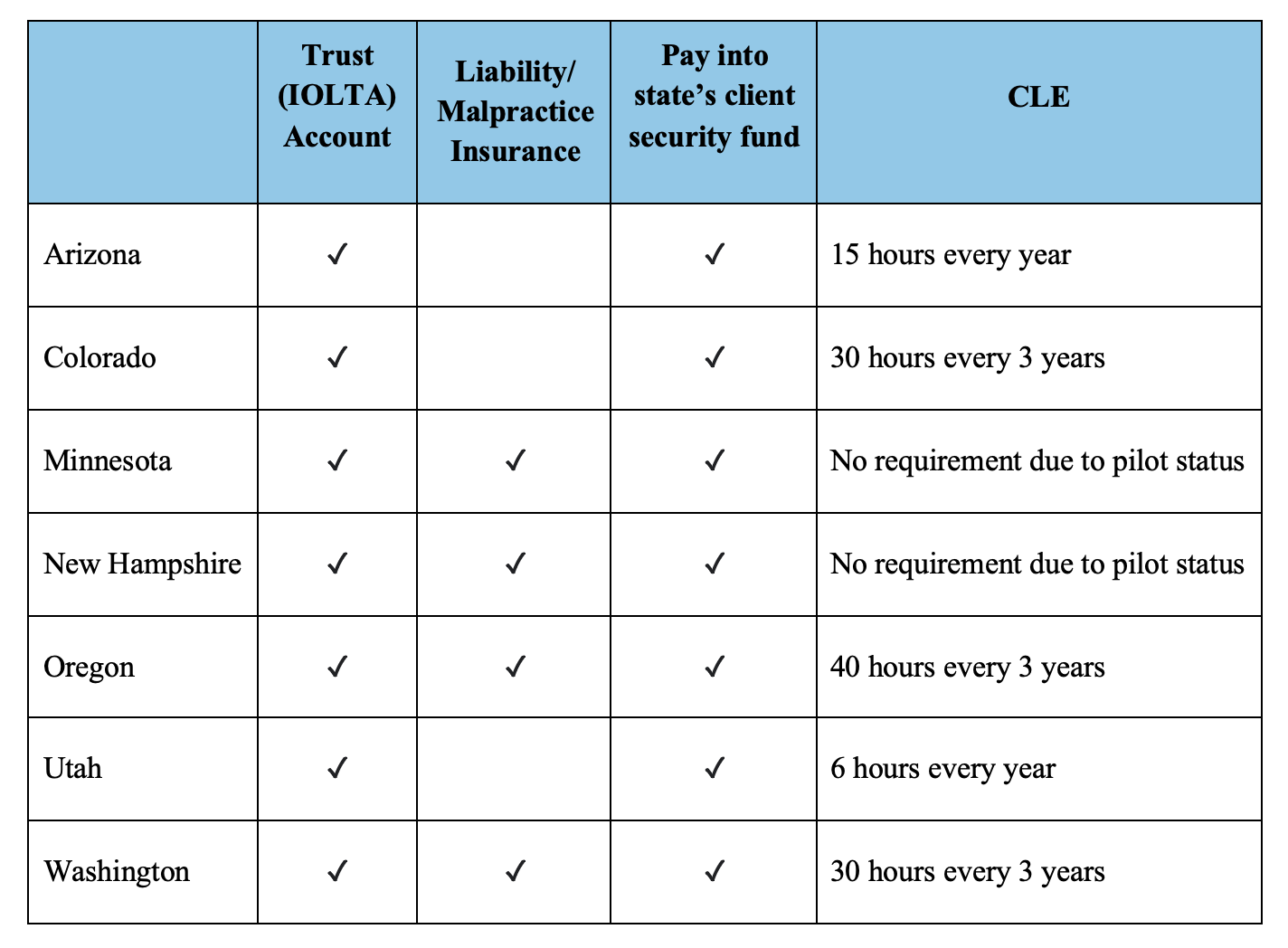< Back to Allied Legal Professionals
IAALS’ Allied Legal Professionals Knowledge Center captures the ongoing work and developments by states around the country exploring the expansion of legal services through new tiers of legal professionals. This Knowledge Center is an up-to-date resource with current state information and recommendations for those considering how these programs can be achieved and improved; read our National Framework for Program Growth for guidance on considering, implementing, or refining ALP programs. Explore the map for state-by-state updates, and the tables and figures below for analysis of program features.
For more information about other regulatory models for nonlawyer legal service providers, visit our Unlocking Legal Regulation Knowledge Center.
Results

Nationwide Program Features:
Most states are limiting ALPs to these three areas of the law: family, landlord/tenant, and debt collection, with every state including family law. Only Arizona has broadened their scope beyond to include limited jurisdiction criminal law, administrative law, and juvenile law. Click for full size.
Each state allows/requires their ALPs to perform each of these roles to a certain extent. To ensure transparency, ALPs must inform their clients that they are not an attorney or that they are working with an attorney. With one exception, states with permanent programs allow ALPs to prepare, sign, and file pleadings while the one pilot state requires the supervising attorneys to sign all pleadings. While some states allow their ALPs to attend a client's deposition, no state allows ALPs to actively represent their clients at depositions. Click for full size.
Arizona, Minnesota, and New Hampshire permit their ALPs to provide full in-court representation, meaning they can represent their clients in court to the full extent an attorney can. While Minnesota and New Hampshire ALPs require attorney supervision, they can represent their clients in court without their supervising attorney present. The four remaining states limit the services their ALPs can provide in court, often limited to sitting next to their client, making opening and closing statements, advising their client as to arguments they should make and evidence they should admit, and answering questions from the judge. Click for full size.
The only two states that require attorney supervision of ALPs are those that began as pilot programs: Minnesota and New Hampshire. Minnesota has since transitioned to a permanent program, and it opted to keep the attorney supervision requirement. Click for full size.
Three states—Colorado, Utah, and Washington—allow ALPs to have an ownership interest in law firms. Their ownership must be a minority interest. The other four states currently do not allow their ALPs to have ownership interest in law firms. Click for full size.
Each state with a permanent program provides a variety of educational pathways to become an ALP, including a waiver of the educational requirement for those who have between three to ten years of substantive law-related experience, depending on the state. This list is only a sample of the most common educational pathways, not accounting for additional educational requirements some states require in addition to these degrees/certificates. Click for full size.
The majority of states require 1,500 hours of practical training prior to licensure of ALPs. In Arizona, the 120 hours is only for applicants that have a law-related degree, otherwise the applicant must also complete one year of substantive law-related experience. Each state requires a specific portion of these hours to be in the area of law the ALP will be licensed. Click for full size.
The format of examinations for Allied Legal Professionals varies by state with the use of multiple choice, essay, and issue spotting. They often resemble portions of the state’s bar exam. Oregon has set itself apart from the other states by implementing a portfolio requirement in addition to an examination. To fulfill this requirement, applicants must provide materials that include, at a minimum, a significant body of work in the area of law in which an applicant is seeking endorsement. Click for full size.
States that allow their ALPs to work independently of attorneys require them to adhere to similar regulatory requirements as attorneys, including the use of trust accounts and paying into the state's client security fund. Washington and Oregon require their ALPs to obtain malpractice insurance; similarly, Minnesota and New Hampshire—the two states that require attorney supervision—require the supervising attorneys to obtain malpractice insurance that also covers their ALPs. Click for full size.


